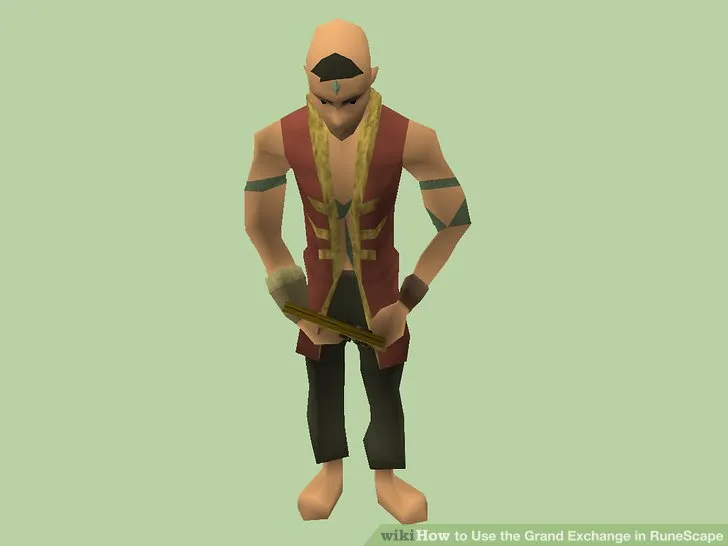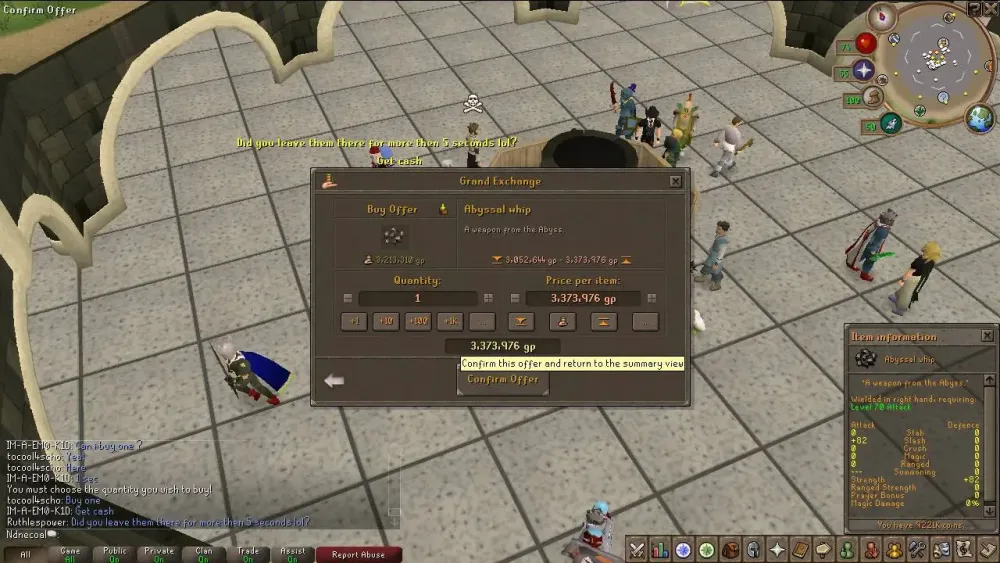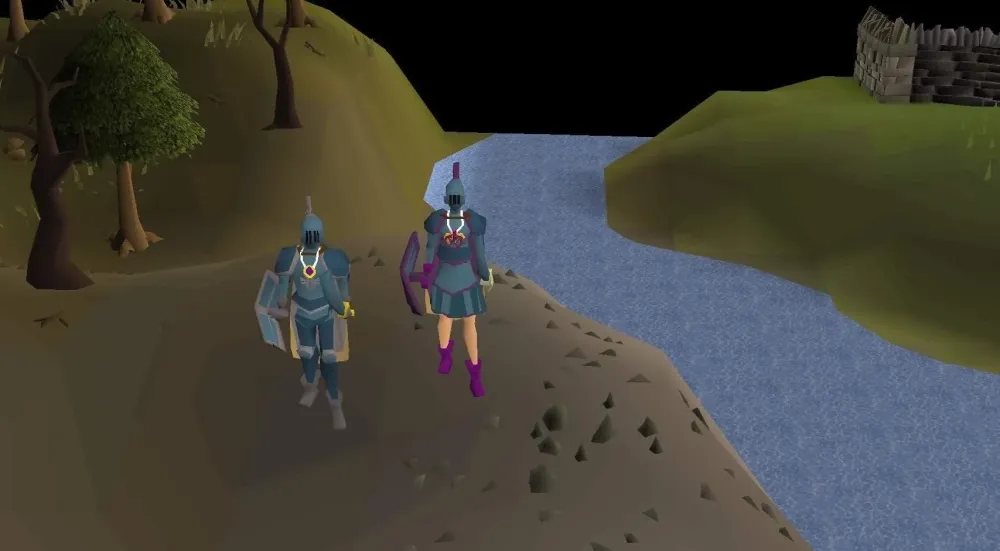Your cart is empty
Grand Exchange Tax in Old School RuneScape – Impact and Insights

The Grand Exchange (GE) in Old School RuneScape (OSRS) is the heart of the game’s economy, where players buy and sell items with ease. Introduced on February 26, 2015, after a community poll passed with 76.3% approval, the GE revolutionized trading by replacing older marketplaces like those in Varrock and Falador. However, in December 2021, Jagex introduced a 1% tax on GE transactions, alongside an item sink system, to address economic issues like inflation. This blog post explores the Grand Exchange tax, its mechanics, impacts, and implications for players, while offering insights into how it shapes the OSRS economy.
The Grand Exchange tax is a 1% fee applied to the sale price of most items sold through the GE, deducted from the seller’s proceeds. This tax, implemented on December 9, 2021, aims to remove gold from the game, combating inflation caused by an influx of coins from activities like bossing and skilling. The tax is applied per item sold, not on the total transaction value, ensuring clarity for sellers.
How the Tax is Calculated
For example, if a player sells 100 Cooked Sharks at 975 GP each, the tax is calculated as 1% of 975 GP per shark, which is 9.75 GP. The game rounds this down to 9 GP per shark, resulting in a total tax of 900 GP. The seller receives 97,500 GP minus 900 GP, or 96,600 GP. The GE interface clearly displays the tax amount before and after the sale, ensuring transparency.
Tax Caps and Exemptions
The tax has a cap of 5 million GP per transaction to prevent excessive deductions on high-value items like partyhats, which can sell for billions. Certain items, primarily tools for new players, are exempt from the tax to encourage early-game trading. Examples include:
- Bronze pickaxe
- Fishing rod
- Needle and thread
- Rune essence
- Bonds (exempt due to existing conversion fees)
A full list of exempt items is available on the GE menus, making it easy for players to identify tax-free trades.
The Item Sink System Explained

Alongside the tax, Jagex introduced an item sink system to reduce the number of items in circulation, addressing oversupply issues. The system uses tax revenue to purchase specific high-value items from the GE, which are then deleted from the game.
How the Item Sink Works
When a taxed trade occurs, a portion of the tax is allocated to a virtual coffer. Jagex uses these funds to buy items like rare weapons or armor, chosen based on their daily influx into the game. For instance, items from high-level PvM activities, such as the Scythe of Vitur, may be targeted. Once purchased, these items are removed, reducing supply and stabilizing prices.
Impact on Item Prices
By removing items, the sink increases scarcity, which can drive up prices for high-demand gear. For example, if Dragon Claws are frequently sunk, their GE price may rise, benefiting players who farm them but increasing costs for buyers. This dynamic creates a delicate balance in the economy.
| Item | Estimated Daily Influx | Potential Sink Impact |
|---|---|---|
| Dragon Claws | 50-100 | Price increase due to reduced supply |
| Abyssal Whip | 200-300 | Moderate price stabilization |
| Rune Scimitar | 1000+ | Minimal impact due to high volume |
Economic Impacts of the Grand Exchange Tax

The tax and item sink have significantly altered the OSRS economy, with both positive and negative effects. By removing gold and items, Jagex aims to curb inflation, which had been driven by high gold inflows from activities like Zulrah and Vorkath, where players could earn 15M+ GP per hour.
Gold Sink Effectiveness
Before the tax, Jagex estimated 2.7 trillion GP entered the game monthly, far outpacing gold removal through deaths or other sinks. The 1% tax has removed billions of GP, with high-value trades like partyhats contributing significantly. For instance, a Reddit user calculated that 44 Blue Partyhats sold at 70B GP each incurred 1.4B GP in tax per sale, totaling 61.6B GP removed monthly from just one item type.
Player Reactions and Market Shifts
Player reactions have been mixed. Some, especially casual players, appreciate the tax for making items more accessible by reducing inflation-driven price spikes. Others, particularly merchants, argue it cuts into profits, with a 2% tax proposal (later reduced to 1%) sparking heated debates on Reddit. The tax has also pushed some players to player-to-player trading in places like Varrock West Bank to avoid fees, though the GE’s convenience keeps it dominant.
Strategies for Players to Navigate the Tax
Adapting to the tax requires smart trading strategies. Here are some tips to minimize its impact:
- Focus on High-Volume, Low-Margin Items: Items like runes or ores have high trade volumes, allowing players to offset tax losses with frequent sales.
- Use Tax-Exempt Items: Incorporate exempt items like bonds or bronze tools into your trading strategy for tax-free profits.
- Monitor Item Sink Trends: Check the GE database for items targeted by the sink, as their prices may rise, offering flipping opportunities.
- Opt for Player-to-Player Trades: For high-value items, trade directly to avoid the 5M GP tax cap, but beware of scams.
By leveraging these strategies, players can mitigate the tax’s impact while capitalizing on market shifts.
Future of the Grand Exchange Tax and OSRS Economy
The Grand Exchange tax and item sink are bold steps toward a healthier OSRS economy, but their long-term success remains uncertain. Jagex’s decision to implement these changes without a community poll, citing economic integrity, underscores their importance. However, ongoing player feedback via forums and Reddit will likely shape future adjustments.
Potential Adjustments
Jagex may tweak the tax rate or expand the item sink list based on economic data. For instance, increasing the tax to 2% could accelerate gold removal but risks alienating merchants. Alternatively, introducing voluntary gold sinks, like the Golden Sink for Player-Owned Houses (costing 10 Condensed Gold), could complement the tax.
Long-Term Economic Outlook
If effective, the tax could lead to deflation, stabilizing prices and making high-end gear more accessible. However, if gold inflows from new content outpace sinks, inflation may persist. Players should stay informed through Jagex’s news posts and community discussions to anticipate market trends.
In conclusion, the Grand Exchange tax and item sink are transformative for OSRS, addressing inflation while reshaping player trading habits. While not without controversy, these systems offer a path to a more balanced economy. By understanding the mechanics and adapting strategies, players can thrive in this evolving marketplace. Share your thoughts on the tax in the comments below, and happy trading!

